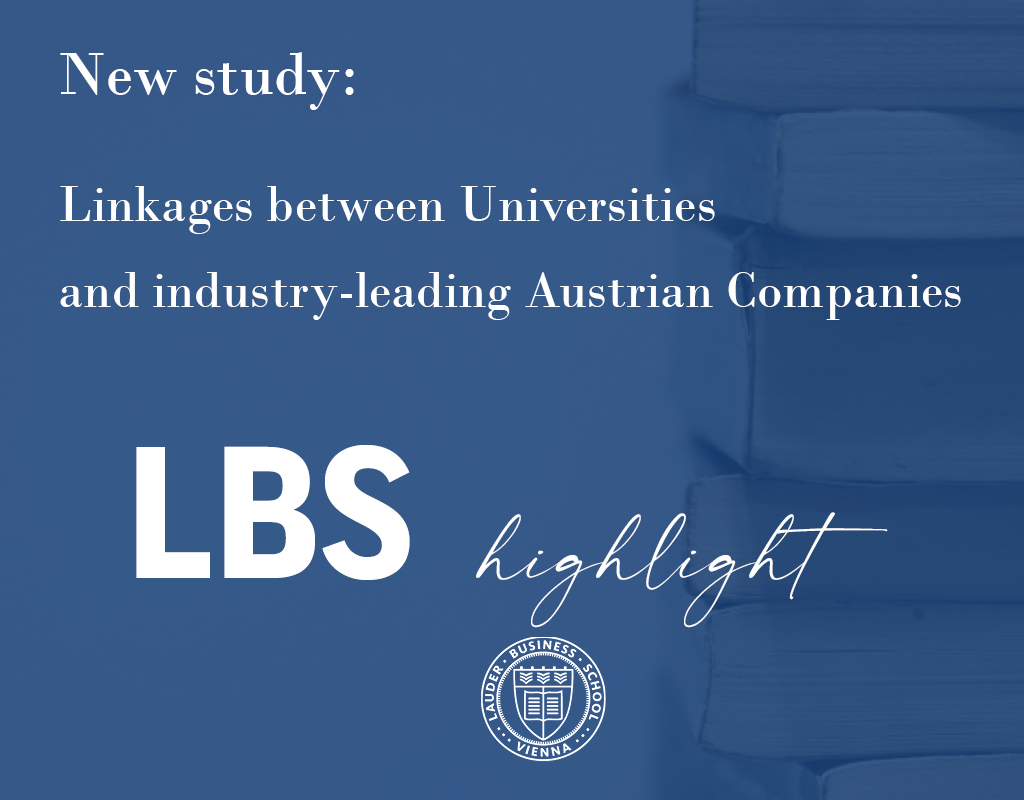
New study highlights intensive cooperation between technical universities and Austrian companies
Christian Reiner, lecturer and senior researcher at Lauder Business School, has published a new study on the role of universities in transferring knowledge to firms in Austria funded by the Federation of Austrian Industries. The study “Die Stellung/Rolle Österreichs Universitäten im Wissens- und Technologietransfer im Speziellen aus Sicht der österreichischen Leitbetriebe“ is a collaboration with colleagues from WPZ Research GmbH, a Viennese research company with a special focus on innovation economics.
Universities play a central role in national innovation systems of advanced economies. Companies need to develop new or upgrade existing products, i.e. they need to be innovative in order to survive in the market. The question is where the knowledge for these innovations comes from. Partly it is the result of the company’s employees learning by doing and learning by observing what actual and potential competitors do. Yet the more technology intensive the firm’s business model is, the higher the probability that fundamentally new knowledge is necessary for the innovation process, and this input is predominantly produced by universities. Therefore the efficiency of knowledge and technology transfers from universities to firms is a crucial determinant of the competitiveness of firms, regions and countries.
The study analyses and presents (1) the main national and European policy instruments which aim to support technology transfer activities, (2) the fit between supply and demand for scientific knowledge and (3) the results of a survey of large Austrian companies regarding their views and experiences on cooperative projects with Austrian and foreign universities.
Compared to other countries, the results show that the cooperation intensity between firms and universities in Austria is very high. 98% (!) of the leading Austrian companies (“Leitbetriebe”) are engaging in various forms of cooperation projects with universities. Most of the time they cooperate with technical universities, such as the TU Wien or the TU Graz. In the survey, companies indicated some dissatisfaction with the rather passive stance of university researchers when it comes to actively initiating joint projects with firms. Furthermore, managers of leading Austrian companies view the technology transfer performance of Austrian universities as inferior compared to that of foreign top universities, such as the ETH Zürich or the Technical University of Munich.
The authors suggest several actions to improve the technology transfer between Austrian universities and firms. For instance, more people with a business background should be hired by universities and a co-determination process of academic research foci together with company research departments should be implemented to better align areas of technological development.
Having said this, universities are funded by the public and their main mission is to support the common good which may not necessarily be aligned with the interests of individual firms. Therefore, it is necessary to strike a rather delicate balance between opposing demands on modern universities, at the center of which are still curiosity-driven academics trying to understand how our world works.


Recent Comments